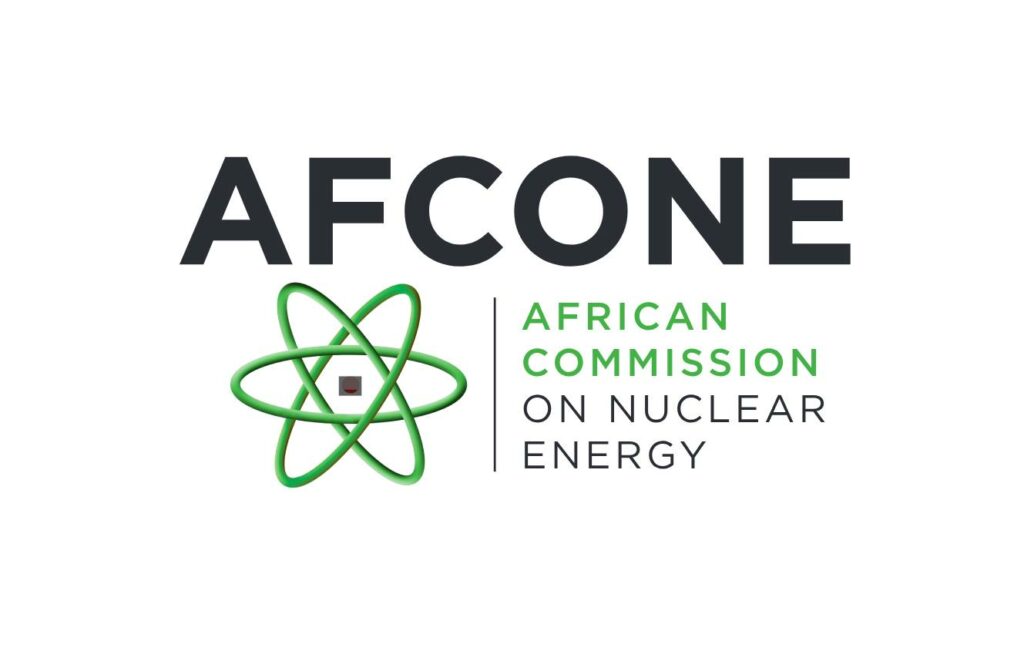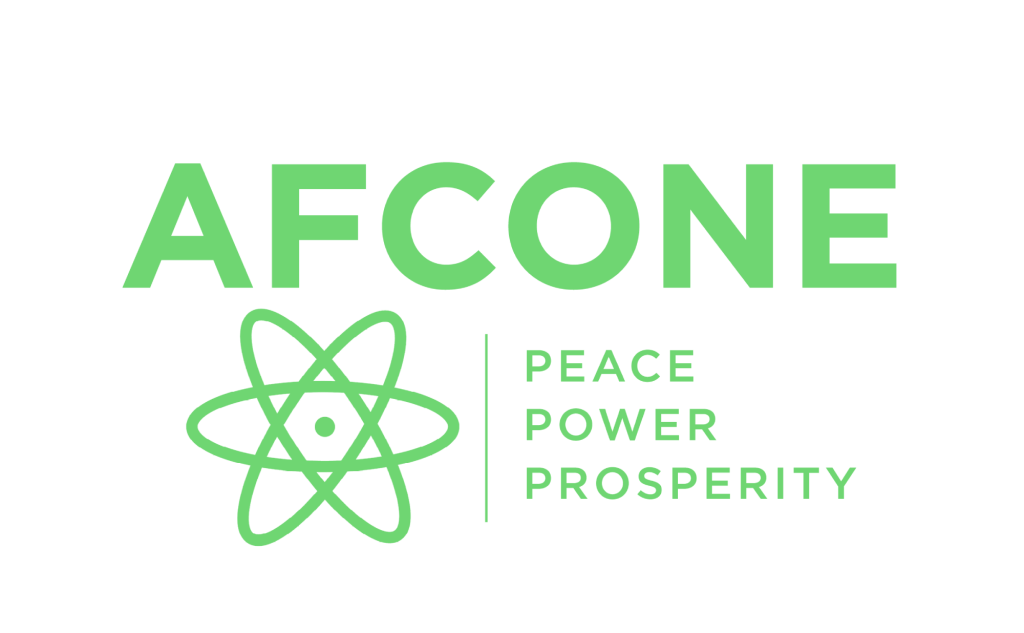Executive Secretary
Statements

Unit B2003, Corobay Corner, 169 Corobay Avenue,
Waterkloof Glen, 0010, Pretoria, South Africa
E afcone.admin@afcone1.mt3ch.net T 0027 (0)87 096 0715
www.afcone.org
Virtual Expert Roundtable on the Implementation of Export and Border Control Obligations Under UNSCR 1540 Within the Context of the African Continental Free Trade Area
Zoom application on Thursday, 8 September 2022, from 13:00 to 16:00
Coordinated Universal Time (UTC) (15:00-18:00 SA Time)
Esteemed Participants,
We thank the UN Office for Disarmament Affairs (UNODA) and the South African Institute of International Affairs (SAIIA) for convening today’s virtual expert Roundtable on the Implementation of Export and Border Control Obligations Under UNSCR 1540 within the Context of the African Continental Free Trade Area. We are grateful for the invitation afforded to the African Commission on Nuclear Energy (AFCONE) to participate in today’s deliberations.
As you may be aware, AFCONE is an African intergovernmental organisation established under Article (12) of the Treaty of Pelindaba – the Treaty establishing the African Nuclear Weapons Free Zone, with the purpose of ensuring compliance of States Parties with their obligations under the Treaty. The scope of AFCONE’s mandate includes the promotion of nuclear disarmament, the prevention of nuclear proliferation and encouraging regional and sub-regional cooperation in safe and secure peaceful uses of nuclear science and technology.
Facilitator,
The Solemn Declaration on a Common African Defence and Security Policy adopted by Heads of State of the African Union in Libya in 2004, noted that common external threats to continental security in Africa may include inter alia, “The accumulation, stockpiling, proliferation and manufacturing of weapons of mass destruction, particularly nuclear weapons, chemical and biological weapons, unconventional long-range and ballistic missiles”.
The Declaration also recognises that the Treaty of Pelindaba is part of the efforts to address the Common African Defence and Security Policy.
While UN Security Council Resolution 1540 and the Pelindaba Treaty differ in scope and application, they share the same objectives of preventing the proliferation of nuclear weapons and strengthening nuclear security.
Of specific relevance to the requirements of Resolution 1540 are the obligations of the Pelindaba Treaty for Parties to prohibit the development, manufacture, stockpiling, acquisition, and possession of any nuclear explosive device, as well as to assist or encourage such activities.
In addition, in Article 10 of the Treaty, state Parties undertake to maintain the highest standards of security and effective physical protection of nuclear materials, facilities, and equipment to prevent theft or unauthorized use and handling.
There are thus clear overlaps in terms of required measures, which illustrate the mutually reinforcing nature of their obligations. This presents opportunities for further collaboration between the 1540 Committee and the African Commission on Nuclear Energy (AFCONE).
AFCONE works with the State Parties with a view to achieving full compliance with the provision of the Treaty. AFCONE is committed to cooperate with the 1540 Committee on strengthening nuclear security in line with the complementary provisions of the Resolution 1540 and the Pelindaba Treaty.
The African Union has adopted resolutions promoting the implementation of resolution 1540 by the AU member states. Workshops have also been held on the Continent to promote implementation.
Facilitator,
As the policy brief prepared for this discussion indicates, the AfCFTA is acknowledged as a flagship project for enhancing Africa’s development and economic integration and achieving the goals of Agenda 2063 of the African Union.
This discussion today is valuable in the context of emphasising that free trade, which is essential for the Continent’s development, is not necessarily hampered by the restrictions placed on member states by the Treaty of Pelindaba or obligations such as those in Resolution 1540 and other export control regimes. The AfCFTA, as with other free-trade agreements, does not exist in a vacuum. States are encouraged to adhere to their obligations under resolution 1540, and other existing WMD agreements despite the freedom of trade envisaged in the free trade agreements.
Therefore, these kinds of discussions, are necessary to illustrate that while barriers for security concerns pertaining to weapons of mass destruction are necessary, they should not be seen as being uncomplementary to trade.
This discussion today identifies the challenges facing member states on the Continent in implementing their regulatory commitments while at the same time attempting to open their borders for enhanced trade and cooperation. These challenges, whether they be weak regulations, lack of capacity in implementing export controls or addressing the potential threats posed by dual use goods can be addressed inter alia through:
(i) A firm commitment by member states to international regulatory frameworks such as those envisaged in Resolution 1540 and the Treaty of Pelindaba;
(ii) Improved cooperation amongst member states on the Continent aimed at harmonisation of applicable regulations;
(iii) Enhanced cooperation at the regional, continental, and international levels to strengthen the global response to proliferation threats.
Facilitator,
Ultimately, member states, must balance their interests of maintaining peace and security and facilitating trade. The responsibility for nuclear security rests entirely with each State. However, as a number of States have not yet adhered to relevant instruments or implemented them effectively through their national legal and regulatory frameworks, assistance by the bodies such as the 1540 Committee to member states on the Continent is commended and is encouraged.
AFCONE, for its part, works in collaboration with the AU Commission, the AU Peace & Security Department, the AU Peace & Security Council and the IAEA, in assisting African Member States to set up their national regulatory bodies and update as well as upgrade their national legislation and regulations according to their regional and international commitments.
AFCONE is committed to cooperate with the UNSC 1540 Committee on strengthening nuclear security in line with the complementary provisions of the Resolution 1540 and the Pelindaba Treaty.
I thank you.
- PEACE
- POWER
- PROSPERITY


